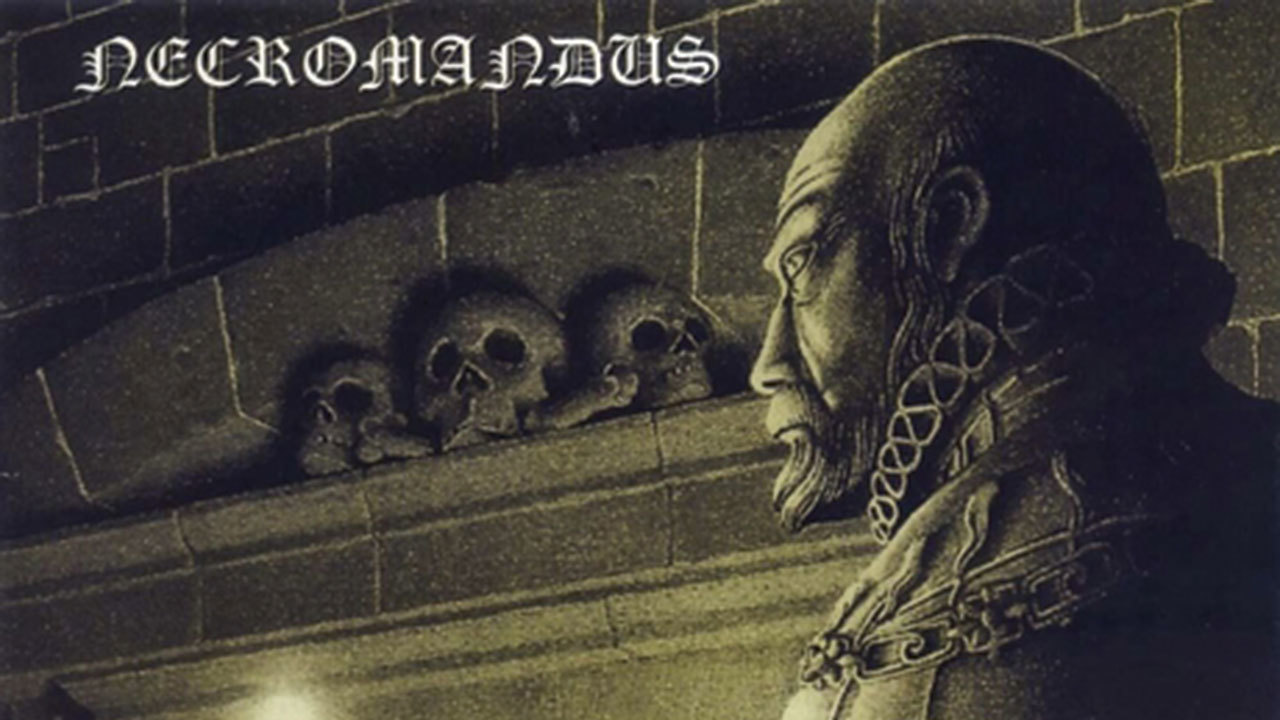It's Prog, Jim, But Not As We Know It: Necromandus
Arguing that Necromandus' album Orexis Of Death counts as prog

Select the newsletters you’d like to receive. Then, add your email to sign up.
You are now subscribed
Your newsletter sign-up was successful
Want to add more newsletters?

Every Friday
Louder
Louder’s weekly newsletter is jam-packed with the team’s personal highlights from the last seven days, including features, breaking news, reviews and tons of juicy exclusives from the world of alternative music.

Every Friday
Classic Rock
The Classic Rock newsletter is an essential read for the discerning rock fan. Every week we bring you the news, reviews and the very best features and interviews from our extensive archive. Written by rock fans for rock fans.

Every Friday
Metal Hammer
For the last four decades Metal Hammer has been the world’s greatest metal magazine. Created by metalheads for metalheads, ‘Hammer takes you behind the scenes, closer to the action, and nearer to the bands that you love the most.

Every Friday
Prog
The Prog newsletter brings you the very best of Prog Magazine and our website, every Friday. We'll deliver you the very latest news from the Prog universe, informative features and archive material from Prog’s impressive vault.
So often cited as a second Black Sabbath, or pioneers of doom, you might wonder what Necromandus are doing in Prog. But this album is not so much proto-metal as progressive metal. And, it sounds a lot closer to Yes or Gentle Giant than the Sabs.
The Cumbrian band started in the late 1960s, when vocalist Bill Branch, guitarist Barry ‘Baz’ Dunnery (older brother of former It Bites singer and guitarist Francis), bassist Dennis McCarten and drummer Frank Hall teamed up. Originally taking the name Hot Spring Water, which they soon changed to Heavy Hand and then Taurus, they developed a heavy yet progressive blues style, which in 1972 caught the attention of Tony Iommi. (The Sabbath guitarist knew the guys because Hall’s old band Heaven had supported an early version of Black Sabbath.) By now, the foursome were called Necromandus, a name suggested by
a radio show, and Iommi agreed not only to manage them, but also to produce their debut album.
In ’73, Iommi and the band went to Morgan Studios in north west London and got the album recorded, after which Necromandus signed to Vertigo, also Sabbath’s label. They inevitably got the chance to support the latter on tour, and also opened for Badger, featuring Yes keyboard player Tony Kaye. But the album’s release was delayed, and when Dunnery quit on the eve of their US tour with Sabbath, Vertigo shelved the record. It was eventually put out by Audio Archives in 1999, and subsequently reissued a handful of times. But by this point, the band had long since split up.
There’s no doubt that, had the album come out when it was originally scheduled, it could have been the springboard for a successful career. There are nuances of blues, jazz and folk here, as well as a distinct but controlled heaviness. Listening to tracks like Nightjar and A Black Solitude gives an immediate appreciation for the deft musicianship and the calm yet intense sense of atmosphere. Barry Dunnery’s guitar work is especially noteworthy, marking him out as a major figure. And the way in which Dennis McCarten and Frank Hall combine is a rhythmic joy: it’s no wonder Ozzy Osbourne wanted to have these three in his first Blizzard
Of Ozz line-up.
Iommi himself guests on the title track, and is almost unrecognisable from the guitar hero on Sabbath’s albums; his approach is more understated and progressively fluent.
Last year, a new line-up of the band came together, with only Hall remaining from these early days (the others have all died in recent times), and they’ve just issued a new, promising album, called Necromandus.
In all, Orexis Of Death deserves its stature as a cult classic. It’s an album that shows what might have been.
Sign up below to get the latest from Prog, plus exclusive special offers, direct to your inbox!
It's Prog, Jim, But Not As We Know It: Stevie Wonder
It's Prog, Jim, But Not As We Know It: Everything Everything
Beltane Fire - Different Breed: It's prog, Jim, but not as we know it
Malcolm Dome had an illustrious and celebrated career which stretched back to working for Record Mirror magazine in the late 70s and Metal Fury in the early 80s before joining Kerrang! at its launch in 1981. His first book, Encyclopedia Metallica, published in 1981, may have been the inspiration for the name of a certain band formed that same year. Dome is also credited with inventing the term "thrash metal" while writing about the Anthrax song Metal Thrashing Mad in 1984. With the launch of Classic Rock magazine in 1998 he became involved with that title, sister magazine Metal Hammer, and was a contributor to Prog magazine since its inception in 2009. He died in 2021.

